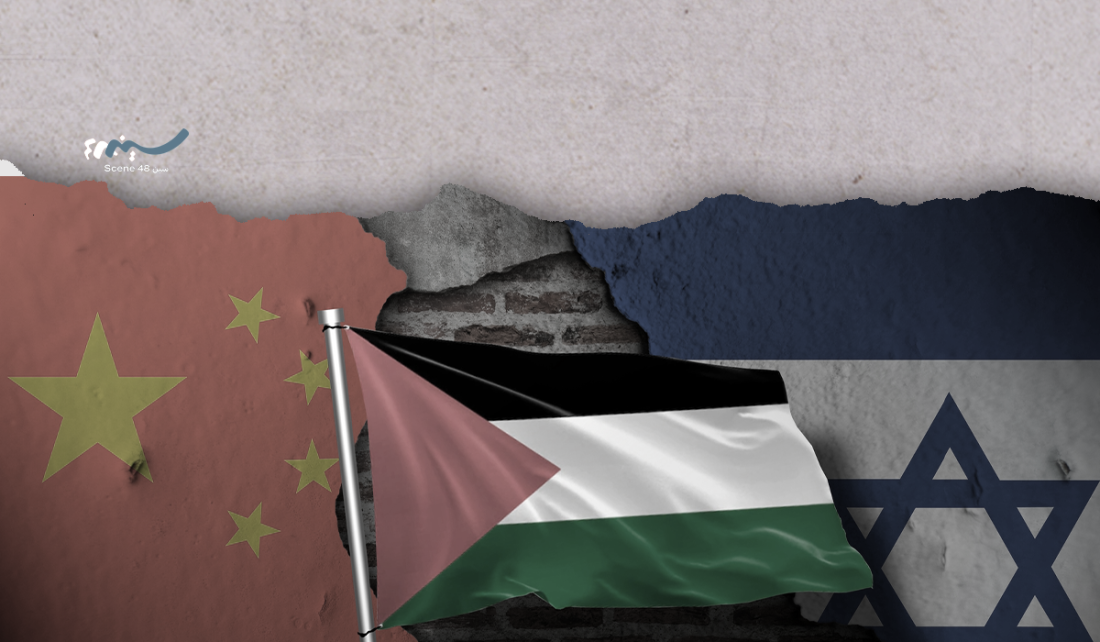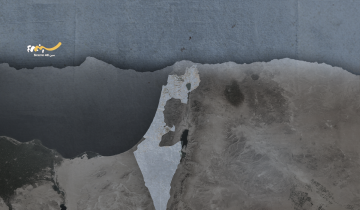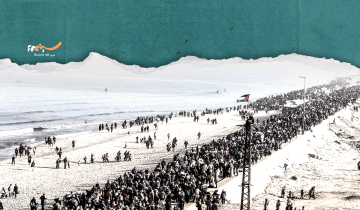Has China’s solidarity with the Palestinians died in Gaza?

Nineteen billion dollars —that’s how much China sold in goods to Israel during the genocidal Gaza war, making it Israel’s top trading partner in 2024, ahead the U.S., which exported nine billion. That ten billion gap speaks louder than Beijing’s public statements.
While Israel’s genocide in Gaza continues, China’s new ambassador to Israel, Xiao Junzheng, marked his arrival on 29 November 2024, with an op-ed in Israel Hayom. Titled “Taking a long view and working in joint hands for a new chapter,” it focused less on Palestinian suffering and more on optimism about deepening ties with Israel.
He describes the relationship as rooted in the idea that “the Chinese and Jewish people each possess a long history and an ancient civilization, and enjoy a time-honored friendship that continues to flourish.”
This raises a key question: how did “Jewish” shift from being a religious identity to a civilization? Such language aligns with Zionist discourse, framing Israel not just a state, but as the homeland of Jews worldwide.
By portraying Israel as an “Jewish civilization” and referring to it as the “Jewish state,” China is adopting the core ideological framing of Zionism—a shift with deep political implications.
This is not new; since normalizing relations in 1992, China has consistently portrayed Israel as an ancient “Jewish state,” sidestepping its reality as a settler-colonial project in Palestine.
What’s alarming is the timing: China uses this rhetoric amid an ongoing genocide in Gaza. While it speaks of Palestinian rights at the UN, it simultaneously affirms Israel’s legitimacy with language echoing Zionist logic.
This exposes two Chinas: one at the UN calling for a ceasefire and a two-state solution, and another praising Israel as a “Jewish state,” avoiding the word genocide, and speaking of “working in joint hands” with Israel.
How can China avoid blame for reinforcing Israel’s far-right, which uses Israel the “Jewish state,” narrative to justify Gaza’s erasure and the West Bank occupation?
From Vetoes to Drones
Despite popular belief, China and the U.S. have taken similar positions on Palestine—not just during the current war, but overall. Neither has used the term genocide. Both mildly criticize Israeli settlements but continue investing in their expansion. The support the Zionist narrativethat frames Israel as the legitimate representative of the “Jewish people” and defend its “right to exist,” while ignoring Israel’s settler-colonial origins.
While the U.S. arms Israel, China largely stays silent, even avoiding U.S. military aid to Israel from its official documents. Beijing’s criticism is limited to U.S. vetoes at the UN Security Council.
This silence reflects China’s growing complicity, especially through its private sector. Chinese-made drone parts are now embedded in Israeli military systems. A recent Israeli Defense Ministry tender for five thousand FPV suicide drones, for use in Gaza and the West Bank, names HQProp (China) as the exclusive propeller supplier and Team Blacksheep (Hong Kong), as the only approved supplier of communication modules. These are essential components for striking Palestinian targets, with no restrictions on their use.
DJI, the world’s leading drone maker, has seen its drones used by Israeli forces for surveillance and military purposes. Though DJI claims its products aren’t for combat, their presence contradicts China’s diplomatic calls for ceasefire.
This contradiction extends to language. “Shalom” has been used cynically by both Chinese and American officials. Donald Trump used it mockingly after ordering the arrest of pro-Palestinian students, while, Xiao praised the term as reflecting Israel’s peaceful nature, saying: “The first Hebrew word I encountered is ‘Shalom’, which not only serves as a greeting but also carries the Jewish people’s long desire for peace since ancient times.”
The West Moves—China Stays Still
On Israel, it is not the “West versus the rest,”—it’s the West, the U.S., and China together versus the rest.
Ironically, several Western countries complicit in Israel’s genocidal war have recently shifted. The UK summoned the Israeli ambassador and suspended the talks on the free trade deal; meanwhile, China’s ambassador reassured Israeli that “China’s new development will bring new opportunities to Israel.”
China’s BRICS partners, Brazil and South Africa, withdrew ambassadors from Israel and downgraded ties. China merely reaffirmed that “there is no direct and fundamental conflict of interests between China and Israel, nor are there any outstanding historical issues.”
French President Emmanuel Macron called Israel’s actions in Gaza “shameful and disgraceful,” noting that only historians can decide if it’s genocide. China still refuses to use the term, even as UN experts, international courts, and leaders across the Global South do.
Britain, Italy, Spain, Canada, Belgium, and the Netherlands have banned or restricted arms sales to Israel, while Chinese companies continue exporting arms-related goods as usual. This doesn’t absolve Western powers, but shows how China now mirrors the worst Western practices.
When Israeli forces fired on international diplomats in Jenin in May 2025, countries like Canadian, Uruguay, Denmark, France, Spain, and Italy summoned their ambassadors. China only said it was “closely following the incident” and urged “all relevant parties, especially Israel, not to take any escalatory moves.”
But in the West Bank Israel is the sole occupying power—there is no second party. If China insists on such language, it should clarify who these “relevant parties” are.
China claims to offer a more “just” alternative to Western foreign policies, its actions now mirror U.S., whose unconditional support for Israel has made it a global outlier.
In May 2021, after Israeli attacks on Gaza, China’s Foreign Ministry spokesperson criticized the U.S. for opposing the international community. Now, the U.S. no longer stands alone—China has joined it in opposing the global consensus.
China’s posture increasingly resembles the U.S. approach, raising the question: does China benefit strategically from the war, as its main rival, the U.S., further implicated? The longer the war drags on, the more the U.S.’s image as a moral authority erodes, potentially boosting China’s global standing. Why should Beijing interrupt this?
Palestinians don’t expect China to cut ties with Israel, but hope it won’t become another United States—from the East. Yet, Gaza is becoming a graveyard not just for invaders, but for great powers’ claims and morals. Palestinians feel bitter, if not betrayed, and China should take note.

Dr Razan Shawamreh
Palestinian researcher in International Relations. Her work focuses on Chinese studies, international relations theory, Sino-Israeli relations, and China’s strategy in the Middle East and North Africa (MENA).



